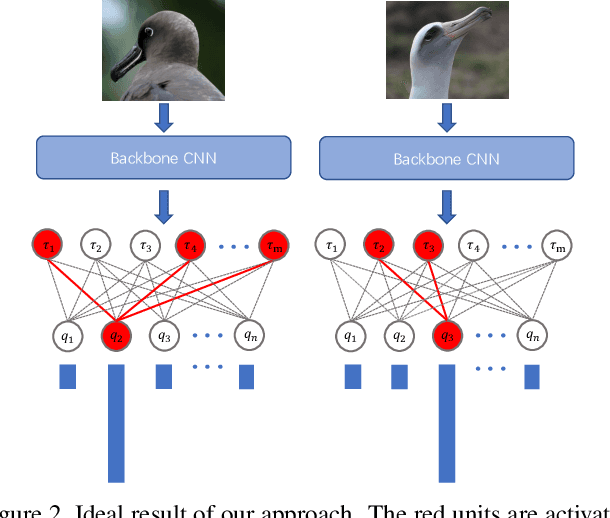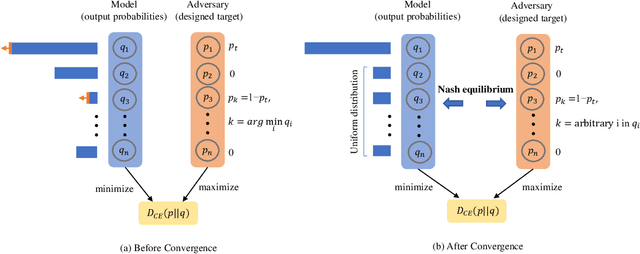Zhijia Yu
Towards Class-Specific Unit
Nov 22, 2020



Abstract:Class selectivity is an attribute of a unit in deep neural networks, which characterizes the discriminative ability of units to a specific class. Intuitively, decisions made by several highly selective units are more interpretable since it is easier to be traced back to the origin while that made by complex combinations of lowly selective units are more difficult to interpret. In this work, we develop a novel way to directly train highly selective units, through which we are able to examine the performance of a network that only rely on highly selective units. Specifically, we train the network such that all the units in the penultimate layer only response to one specific class, which we named as class-specific unit. By innovatively formulating the problem using mutual information, we find that in such a case, the output of the model has a special form that all the probabilities over non-target classes are uniformly distributed. We then propose a minimax loss based on a game theoretic framework to achieve the goal. Nash equilibria are proved to exist and the outcome is consistent with our regularization objective. Experimental results show that the model trained with the proposed objective outperforms models trained with baseline objective among all the tasks we test. Our results shed light on the role of class-specific units by indicating that they can be directly used for decisions without relying on low selective units.
 Add to Chrome
Add to Chrome Add to Firefox
Add to Firefox Add to Edge
Add to Edge